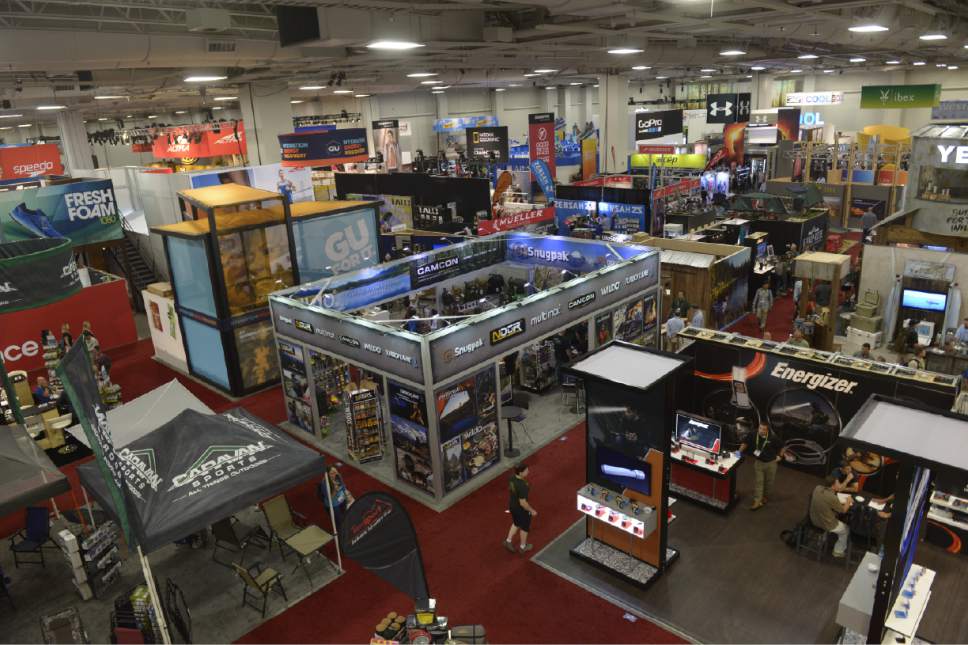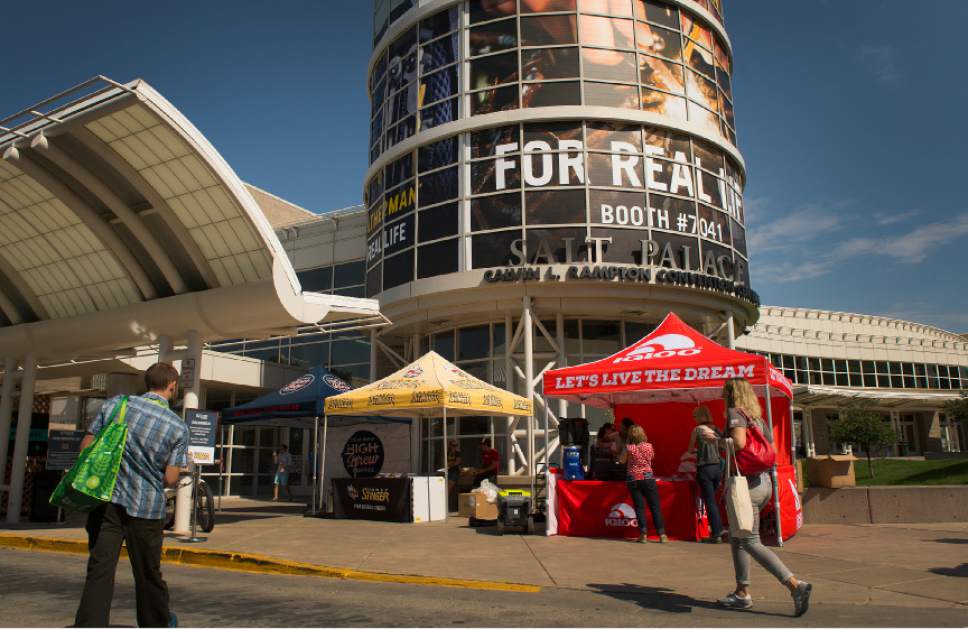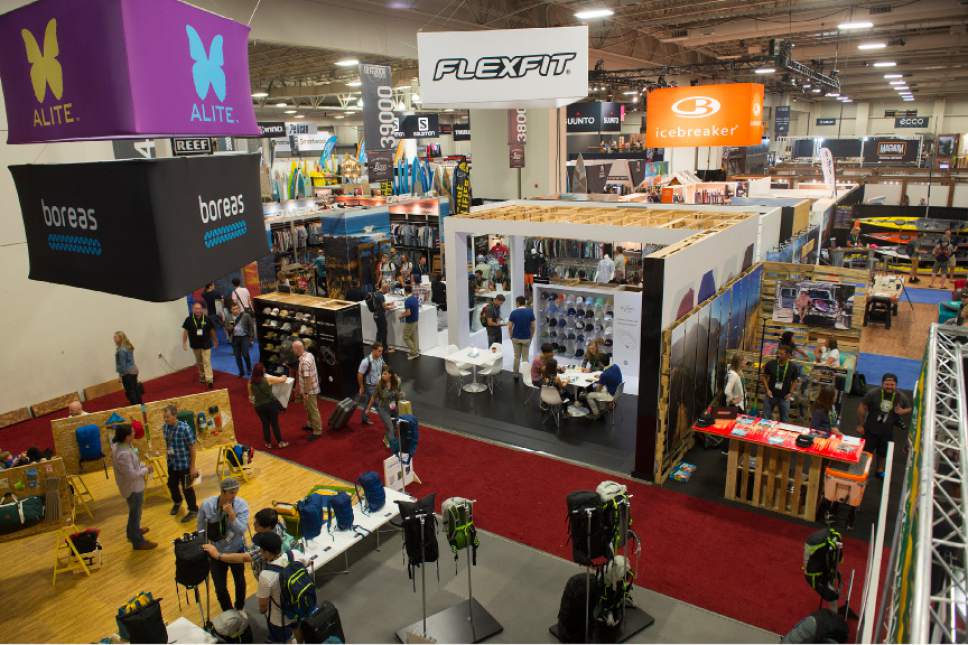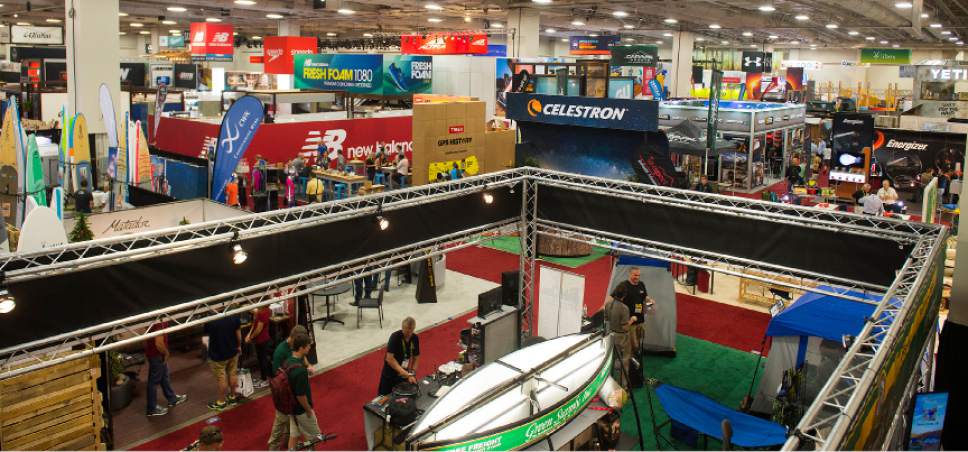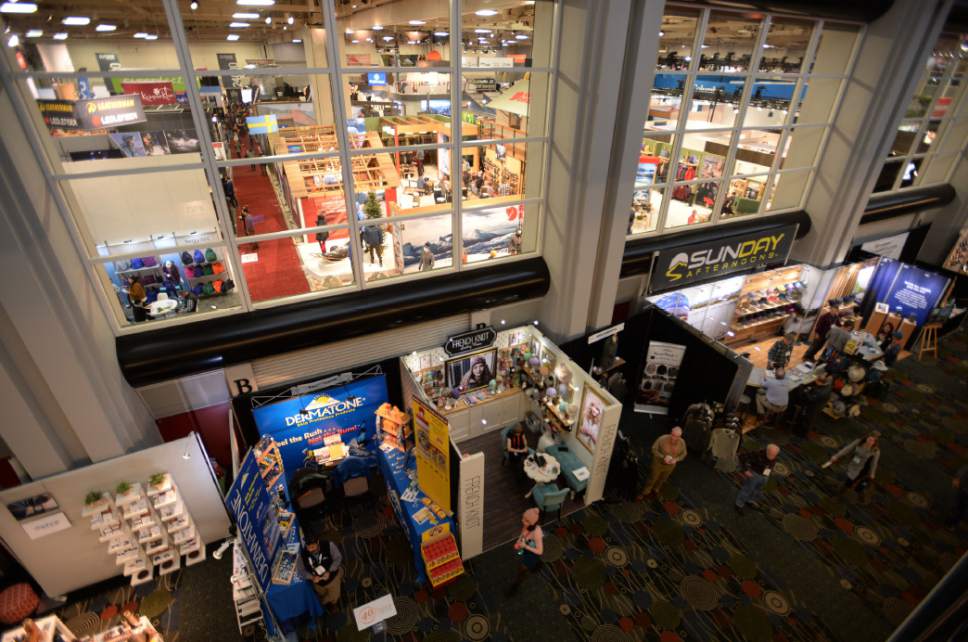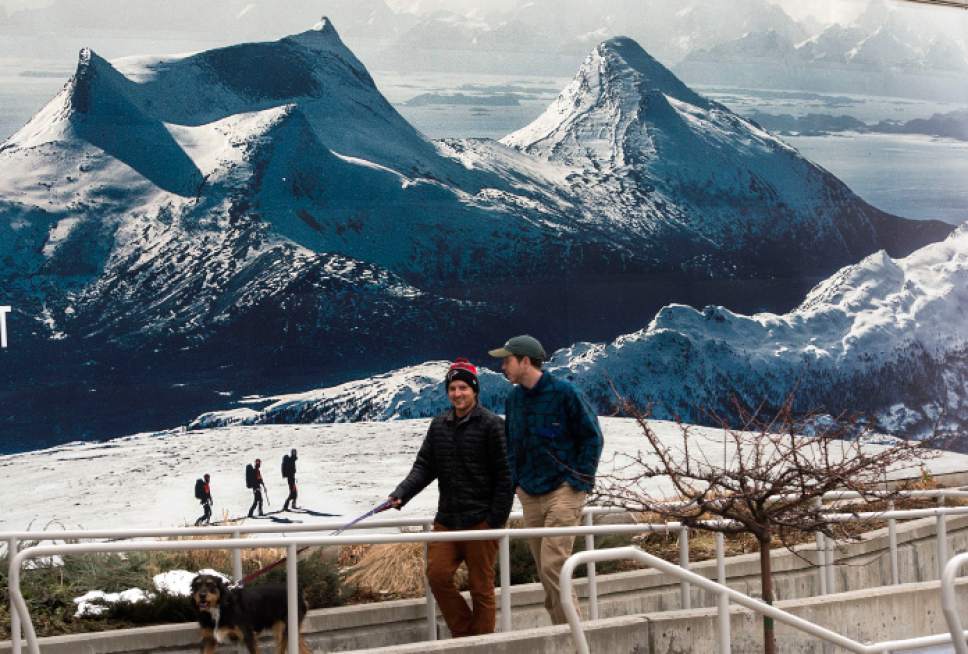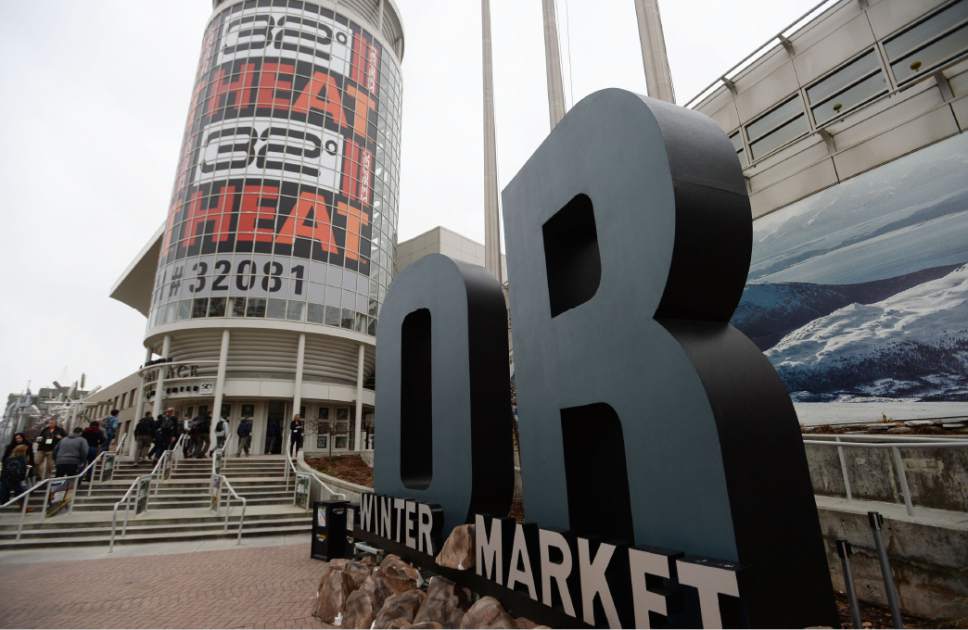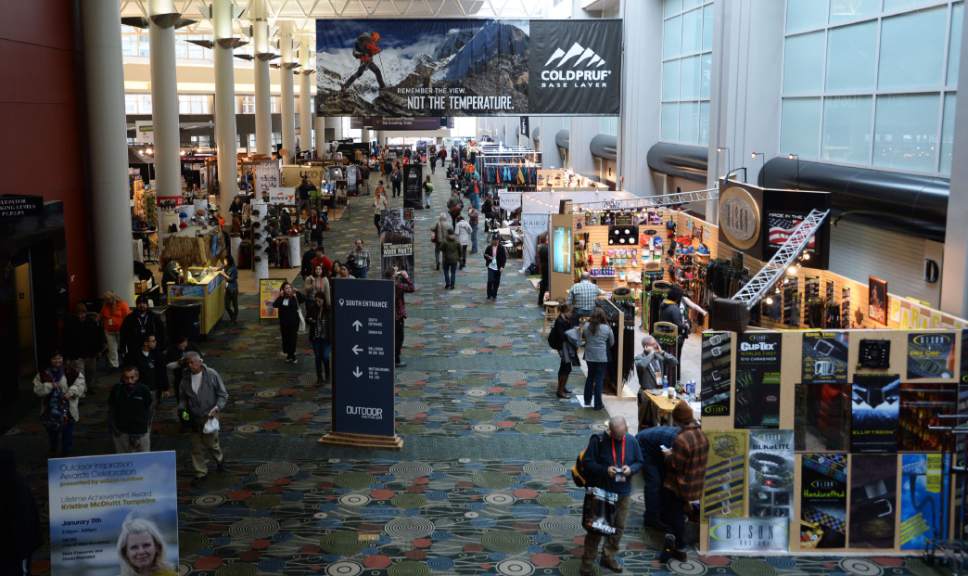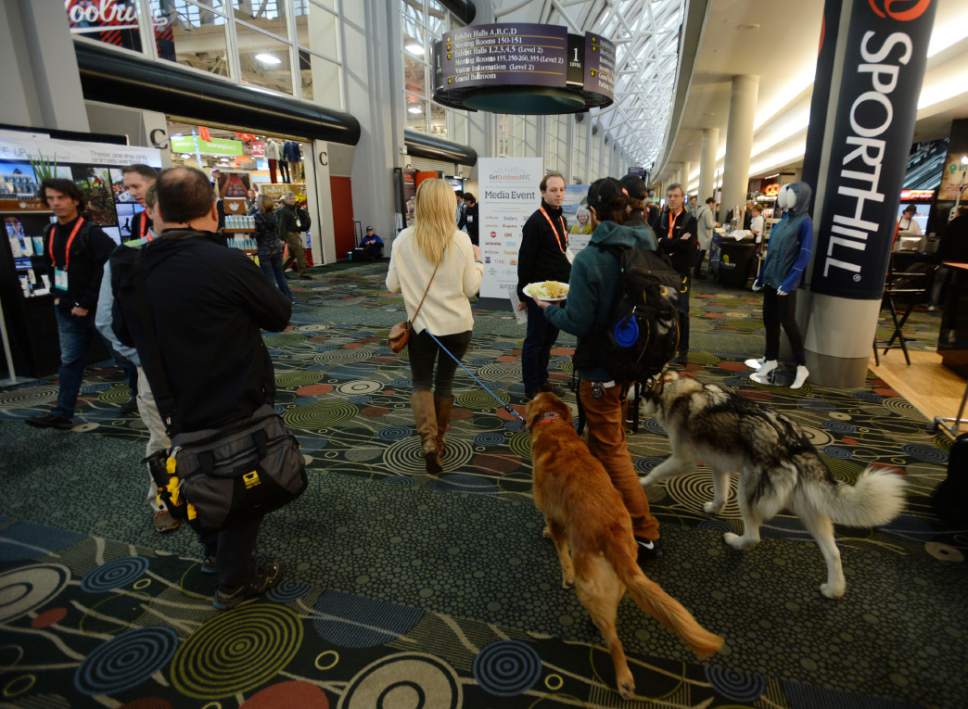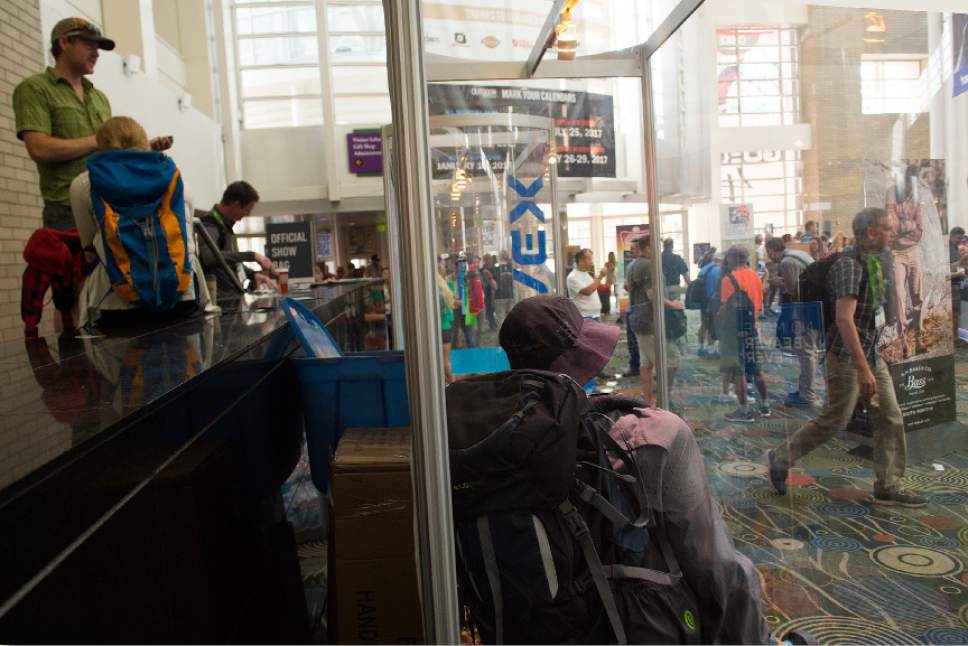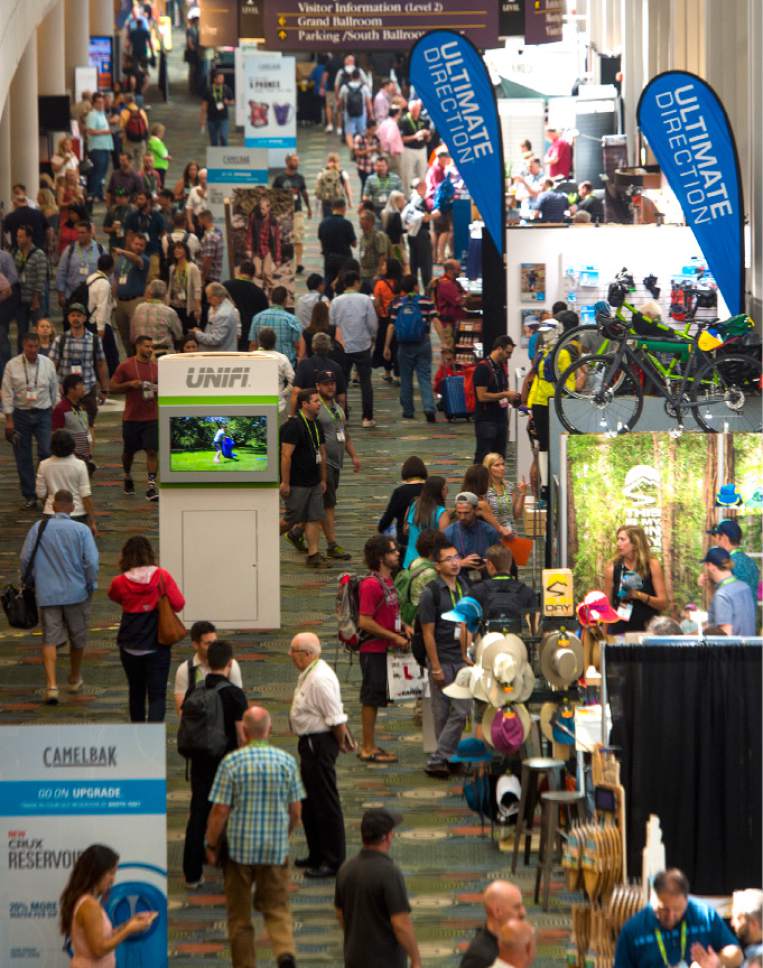This is an archived article that was published on sltrib.com in 2017, and information in the article may be outdated. It is provided only for personal research purposes and may not be reprinted.
Organizers of the Outdoor Retailer show are soliciting proposals for a possible new location for the massive, twice-yearly conventions held for two decades in Salt Lake City.
The call for bids follows outcry from some industry leaders who say the show should leave Utah in protest of state public lands policies, particularly its vocal opposition to the newly anointed Bears Ears National Monument.
The shows, which organizers say bring at least 45,000 visitors and $40 million annually to the state's economy, may still remain in Utah's capital, they said Monday. But multiple groups associated with the convention stressed the need for choosing a venue whose policies support the outdoor industry's "culture" and "values."
"We've heard member discontent as well as comments from Utah's [political] delegations and efforts on public-land policy that are out of alignment with what our industry stands for," said Amy Roberts, executive director of the Outdoor Industry Association, which has close ties to the show and encouraged the show's owner, Emerald Expositions, to seek a range of potential host cities.
Prominent outdoor-industry executives Peter Metcalf, founder of Black Diamond Equipment, and Yvon Chouinard, founder of Patagonia, have called publicly in recent weeks for the shows to depart Utah, citing concerns over public-lands access.
Roberts specifically cited several recent moves by Utah politicians: a bill passed last week in the Legislature urging President Donald Trump to rescind his predecessor's designation of Bears Ears National Monument; a rules change proposed in Congress by Rep. Rob Bishop, R-Utah, to change how federal lands are valued and make them easier to sell; and other efforts to have federal lands turned over to the state, where "they would eventually be sold off and privately held and not accessible to recreationists," she said.
"The overriding theme," Roberts said, "is a disagreement over keeping public lands public, and we really see that as a foundational issue for our industry."
Gov. Gary Herbert, though, says "Utah is a public-lands state and always will be," according to Paul Edwards, his spokesman
The large amount of public land in Utah, Edwards said, is one reason why the state is often in the crosshairs of criticism. Two-thirds of Utah is federally owned land, compared to one-third of Colorado.
"There's just less interface with these public-lands issues in that state," Edwards said. "It's just a different environment there in terms of how much of the land comes under federal jurisdiction and, hence, the possibility for questions about its appropriate use and management."
A spokesman for Salt Lake City Mayor Jackie Biskupski said show organizers should take into account what the city offers, including proximity to mountain recreation and progressive policies on environmental stewardship, preserving open space and reducing carbon emissions.
"When they take a thoughtful look," Biskupski spokesman Matthew Rojas said, "we're confident they will see we really do share the same values."
Scott Beck, president of Visit Salt Lake, said he learned Friday the show was seeking other suitors, in the form of requests for proposals, or RFPs — and he welcomed the move.
"We love the RFP process; we do a good job on the RFP process," Beck said. "... We know, based on our long history with the show, that the Salt Palace Convention Center is one of, if not the most, sustainable [convention centers] out there."
Herbert agrees.
"It's going to be tough for them to find as strong a venue," Edwards said.
Beck also noted that Outdoor Retailer entertains proposals from other cities every time its contract is up for renegotiation — though in previous years proposals have been accepted by invitation only.
"It's still not open to every city in the country," Beck said. "... It's still a small circle of [cities] that can physically host what will be requested in the RFP."
Darrell Denny, executive vice president for Emerald Expositions' Sports Group, confirmed Monday that this is the first time since the convention has been held in Salt Lake City that organizers have made a public request for proposals from any city interested.
Outdoor Retailer organizers have heard an "increased volume" of complaints from convention participants this year over state-level land management policies in Utah, Denny said.
That wasn't the only factor in re-evaluating the show's host city, he said. Product-release schedules have changed over time, and Outdoor Retailer is adding a November show in 2018, when its contract with Salt Lake City expires.
"[We said], 'Let's just stop and take a fresh look at what the wider universe is ... before we make a decision about the future," Denny said.
He acknowledged several advantages to staying in Utah's capital.
"Salt Lake City has worked long and hard to make itself attractive for Outdoor Retailer, to create means by which we could house exhibitors as we grew beyond the Salt Palace Convention Center," Denny said. "The hotel community has been very supportive."
And, he said, the city's proximity to recreation sites is important, both for the shows' product "Demo Days" and for representatives with the 1,000-plus exhibitors, many of whom recreate in Utah before and after the shows.
"Public-lands issues are one factor," Denny said.
One official said show logistics may make some venue changes inevitable. Outdoor Retailer has gotten so large, serving different subsets of the outdoor industry, that breaking up the event into multiple venues may be inevitable, said Brad Peterson, who ran the Utah Office of Outdoor Recreation from 2013 to 2015.
"It's like the European Union, where you're making policy for one country, although it might not make sense for another country," he said.
Even if the convention finds a new host city, parts of it likely will remain in Utah, Peterson believes, because Salt Lake City offers much that other cities can't.
The Salt Palace is a largely non-union venue, for example, allowing exhibitors to pay up to 25 percent less to store, transport, put up and take down their displays, Peterson noted. And Salt Lake City still holds a rare combination of proximity to an international airport, public lands and world-class ski venues.
Still, comments last week by Colorado Gov. John Hickenlooper appeared to advertise Denver — which has a $1.1 billion event center in the works — as a possible alternative to Salt Lake City.
"We are always going to make the argument, 'Here's why Colorado is better,' " Hickenlooper told The Denver Post, noting: "I think we need more public land, not less."
And Lt. Utah Gov. Spencer Cox last week acknowledged that the Outdoor Industry Association and Outdoor Retailer show "sometimes have disagreements over the size, scope and administration of public lands."
Herbert, Edwards said, will meet next week with representatives of Outdoor Industry Association and Emerald Expositions.
His lieutenant governor said he was optimistic that the convention would stay in Salt Lake City, based on his meetings at the Outdoor Retailer Winter Market in January.
"It became clear," Cox said, "that we are not far apart in our ultimate goals of preserving the best parts of Utah for future generations."
— Tribune reporter Brian Maffly contributed to this story.
Twitter: @erinalberty


